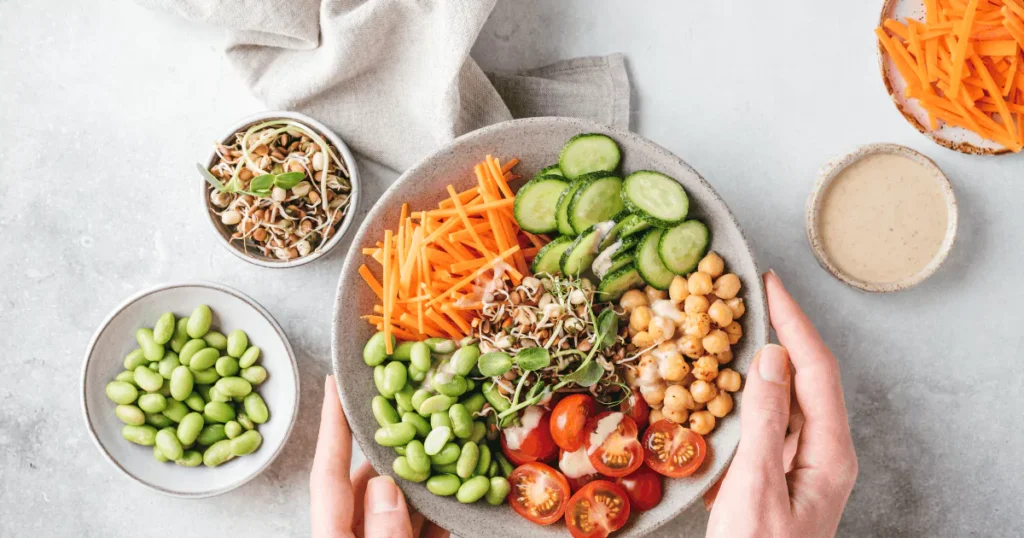For people with a busy schedule, achieving weight loss can be challenging but not impossible. Start by making small, manageable changes to your routine. Prioritize quick, nutritious meals that support weight loss, like salads, grilled proteins, and fruits. Meal prepping on weekends can save you time and help you avoid unhealthy fast food during the week. For exercise, aim for short but effective workouts, like a 10-minute HIIT session or a brisk walk during lunch breaks.
Staying hydrated is essential, as water helps control hunger and boosts metabolism. Incorporate movement throughout the day – take the stairs, walk while on calls, or do light stretches at your desk. Quality sleep is also crucial, as it prevents cravings and aids weight loss. With consistent small efforts, even a busy person can reach their weight loss goals over time.

Weight Loss Tips for People
Finding time to focus on weight loss when life is packed with deadlines, meetings, family responsibilities, and other daily commitments can feel nearly impossible.
Prioritize Protein for Lasting Fullness
One of the easiest changes you can make is to focus on adding more protein to your meals. Protein helps keep you full longer, which can cut down on unnecessary snacking. Imagine protein like a heavy blanket when you have it, it covers your hunger and keeps it tucked in longer.
Easy ways to add protein:
- Swap in a handful of nuts or Greek yogurt for your usual snack.
- Choose protein-rich breakfasts like eggs or a smoothie with protein powder.
- If you’re in a hurry, pack a hard-boiled egg or a handful of almonds for a quick, portable snack.
Drink More Water Throughout the Day
Staying hydrated can help you achieve your weight loss goals. Sometimes, our brains mistake thirst for hunger, leading us to reach for snacks when all we really need is a glass of water. Keep a water bottle with you throughout the day, and take sips regularly, even if you’re not thirsty.

Try setting reminders on your phone every hour as a gentle nudge to drink water. It’s like setting little checkpoints to remind you to stay hydrated. Aiming for 8 cups (around 2 liters) daily can be a good target, but listen to your body.
Plan Simple, Balanced Meals
Meal planning may sound like another task on your to-do list for weight loss, but it can save you time in the long run. When you plan meals, you’re less likely to make impulsive food choices that may not be as healthy.

Quick meal planning tips:
- Use Sundays or any free day to prepare ingredients like chopped vegetables, grilled chicken, or boiled eggs that can be used in various meals throughout the week.
- Batch-cook healthy meals like soups, stews, or stir-fries that you can portion and freeze.
- Aim for a mix of protein, fiber, and healthy fats in each meal to keep you satisfied and energized.
Focus on Short, Effective Workouts
If you think workouts only count if they’re long, intense sessions at the gym, think again. You can benefit greatly from short, high-intensity workouts that only take 15-20 minutes. Think of these workouts like taking the stairs instead of the elevator: short, quick, and effective.
Types of short workouts to try:
- High-Intensity Interval Training (HIIT): These workouts involve short bursts of intense exercise followed by brief rest periods. For example, 20 seconds of jumping jacks, 10 seconds of rest, and repeat.
- Bodyweight exercises: Push-ups, squats, lunges, and planks can all be done quickly at home without equipment.
- Walking breaks: If you have a few minutes between tasks, quickly walk around your office or block. Even five minutes of movement here and there adds up.
Don’t Skip Breakfast
When you’re running late, it can be tempting to skip breakfast. But starting the day with a balanced meal can help you control cravings later. Think of breakfast as the foundation of a building. When it’s solid, it supports the rest of your day.
A good breakfast doesn’t have to be elaborate:
- A smoothie with fruits, vegetables, and protein powder can be prepared in just a few minutes.
- Overnight oats can be prepped the night before and customized with nuts, seeds, and fruits.
- Whole-grain toast with a spread of avocado and a sprinkle of salt is quick, satisfying, and nutritious.
Practice Mindful Eating
Mindful eating means paying attention to your food and enjoying each bite. When you eat mindfully, you’re more likely to notice when you’re full and less likely to overeat. It’s like listening to your favorite song; instead of having it play in the background, you appreciate it more.
Tips for mindful eating:
- Try not to eat while working or watching TV. Instead, focus on your food.
- Chew slowly and savor the flavors.
- Listen to your body’s hunger cues. Stop eating when you’re comfortably full, not stuffed.
Keep Healthy Snacks on Hand
When life gets busy, it’s easy to grab whatever food is nearby. Having healthy snacks available can make a big difference. Think of healthy snacks like road signs that keep you on track when you’re on a journey.
Quick and easy snack ideas:
- Fresh fruit like apples, bananas, or grapes.
- Nuts, seeds, or a mix of both in a small container.
- Low-fat cheese sticks or yogurt cups.
- Whole-grain crackers with a bit of hummus or peanut butter.
Get Enough Sleep
Sleep is often the first thing we sacrifice when busy, but it’s vital for weight loss. Lack of sleep can make you hungrier and crave sugary foods because your body is looking for quick energy. Think of sleep like recharging your phone—when your body is fully charged, it functions better throughout the day.
Sleep is one of the most overlooked factors in weight loss, yet it plays a huge role in how our bodies manage hunger, energy, and even fat storage. When we’re sleep-deprived, our bodies produce more ghrelin, the hormone that signals hunger, and less leptin, which tells us we’re full. This imbalance can lead to cravings, especially for high-sugar and high-carb foods that provide a quick energy boost.
Without enough rest, your body goes into “survival mode,” slowing down your metabolism and holding onto fat as a reserve. Additionally, being tired can affect your motivation to exercise and make healthy food choices, creating a cycle that can make weight loss much harder. Think of sleep as the foundation of your health; when it’s strong, other habits like healthy eating and exercise are easier to maintain. By prioritizing sleep, you’re not only recharging your body but also setting yourself up for better, more sustainable weight loss and overall wellness.
Simple tips for better sleep:
- Try to go to bed simultaneously every night to establish a routine.
- Reduce screen time at least an hour before bed to help your mind relax.
- Keep your bedroom calm, dark, and quiet for optimal sleep conditions.
Make Use of Downtime for Mini Workouts
Even if your day is packed, you might find small gaps in downtime. These moments are great opportunities for mini workouts. It’s like sneaking extra steps when you park further from the store—you’re working in small bits of movement that add up.
Examples of mini workouts:
- Do calf raises or squats while waiting for your coffee to brew?
- Squeeze in a set of push-ups or lunges during a 5-minute break.
- Stretch while on a conference call or taking a quick phone break.
Practice Patience and Consistency
Weight loss takes time, especially with a busy schedule, so don’t expect major changes overnight. It’s normal for progress to feel slow, but every small habit you build is a step in the right direction. Think of each healthy choice as planting a seed that will eventually grow into lasting results. Staying consistent with your weight loss goals is what truly matters.
You don’t have to be perfect; what counts is making steady progress. On hectic days, just focus on doing your best sometimes, that means taking just one small step toward your goal. Over time, these small actions will add up and become part of your routine, making weight loss feel more achievable and sustainable. With patience and commitment, you’ll get closer to your goal daily.
Conclusion
Weight loss on a busy schedule doesn’t require extreme measures; it’s about making small, realistic adjustments that fit your lifestyle. Begin by focusing on easy changes like adding more protein to your meals, which can keep you full longer and support weight loss. Even with limited time, a short daily workout can make a difference.
Walking more, taking the stairs, or doing quick exercises at home are manageable ways to stay active. Prioritizing sleep is also crucial, as rest helps your body recover and supports healthy weight loss. Don’t stress over doing everything at once—each small effort you make, whether it’s choosing healthier meals or finding time to move a bit more, brings you closer to your goals. With patience and consistency, these small changes can lead to effective weight loss without overwhelming your daily routine.

